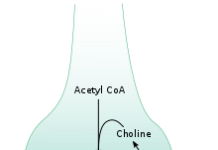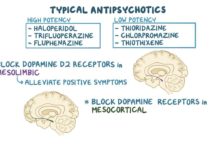Pregnancy and giving birth are intensely emotional experiences. And while these life-changing events can bring joy, they can also present challenges that make you feel sad, tired, and anxious.
Signs and Symptoms of Postpartum Depression
Symptoms of postpartum depression vary from person to person, and may include:
- Severe anxiety and panic attacks
- Depressed mood or severe mood swings
- Fear of being a bad mother
- Sleep problems, such as insomnia or excessive sleep
- Appetite changes (hardly eating or eating much more than usual)
- Recurrent thoughts of suicide or death
- Intense irritability or anger
- Difficulty bonding with the baby
- Thoughts of harming yourself or the baby
- Overwhelming fatigue or loss of energy
- Restlessness
- Diminished ability to think clearly, concentrate, or make decisions
- Sense of guilt, shame, worthlessness, or inadequacy
- Hopelessness
- Excessive crying
“If symptoms go beyond a two-week period, and the mother is still experiencing problems, that will usually lead to a diagnosis of postpartum depression,” says Diane Brown-Young, MD, a staff physician in the department of obstetrics and gynecology at the Cleveland Clinic and at the Willoughby Hills Family Health Center in Ohio.
Learn More About Signs and Symptoms of Depression
How Is Postpartum Depression Diagnosed?
Postpartum depression often goes unaddressed, in part because parents may feel shame for feeling down during what “should” be a time of joy. But a proactive approach to treatment is best for everyone concerned.
Screening for postpartum depression in pregnant and postpartum individuals is now recommended by the American College of Obstetricians and Gynecologists, the American Psychiatric Association, and the American Academy of Pediatrics. It is also covered by insurance, and can begin with a simple questionnaire that parents fill out in the waiting room.
That’s why it’s so crucial to open up about any feelings you may be experiencing during prenatal visits or during the typical six-week follow-up appointment with your ob-gyn after your baby is born.
Prognosis for Postpartum Depression
Treatment and Medication Options for Postpartum Depression
Regardless of the extent of symptoms, it’s important to get proper treatment during this important time in your life and the life of your baby. The first step is talking to your healthcare provider.
Talk Therapy for Postpartum Depression
A therapist, psychologist, or social worker can teach you strategies to change how depression makes you feel, think, and behave.
Medication for Postpartum Depression
Each parent should make that decision personally, in consultation with their doctor, considering factors like medical history and circumstances.
There are a number of drugs to treat postpartum depression, starting with antidepressants. Your healthcare provider can prescribe one that is safe to take while breastfeeding. Note that these medicines may take several weeks to become effective.
In March 2019, the U.S. Food and Drug Administration (FDA) approved Zulresso (brexanolone) as the first medication specifically for postpartum depression. It is administered through an IV line continuously for two and a half days (60 hours). It may not be safe to take while pregnant or breastfeeding.


First Medication for Postpartum Depression Wins FDA Approval
In 2019, the FDA also approved the nasal spray Spravato (esketamine) for treatment-resistant depression in adults. Derived from ketamine, a widely used anesthetic, it is administered only at certified treatment centers. The drug works very quickly, usually within hours. It is not safe to take while pregnant or breastfeeding.
Electroconvulsive Therapy for Postpartum Depression
Strategies for Coping With Postpartum Depression
Make healthy lifestyle choices. Although it is definitely a challenge to focus on yourself with a new baby, it’s important for people who have postpartum depression to take time to do things like eating healthy meals, exercising, getting enough sleep, and avoiding alcohol, which can exacerbate mood swings.
Practice self-care. Enlist a partner, friend, or other family member to watch the baby or hire a sitter, then get out of the house and do something for yourself.
Set realistic expectations. Treatment can help, but it may take some time before you feel like yourself again. In the meantime, don’t feel pressured to check off everything on your to-do list.
Say yes to caregiving help. Take people up on their offers to help. Your friends and family members can help around the house, watch the baby so you can sleep, run errands, or be there to listen when you need to talk.
Avoid isolation. Talk with your partner, friends, or family about how you’re feeling. You may want to join a support group with other mothers who’ve experienced postpartum depression and can share experiences and coping skills.
Prevention of Postpartum Depression
If you’re planning to become pregnant, or as soon as you do, it’s important to tell your doctor about any history of mental illness, especially previous episodes of postpartum depression. Your doctor can then be sure to check in with you throughout your pregnancy for signs or symptoms of depression.
Research and Statistics: How Many People Experience Postpartum Depression?
Countries with higher rates of maternal and infant mortality, income inequality, and women of childbearing age working over 40 hours a week also have higher rates of postpartum depression.
Related Conditions and Causes of Postpartum Depression
Other related conditions may include:
- Persistent depressive disorder
- Generalized anxiety disorder
- Postpartum psychosis
- Postpartum post-traumatic stress disorder
- Obsessive-compulsive disorder
Resources We Love
If you are thinking about harming yourself or your baby, or if you are concerned about someone you love, get the support you need. These resources can help.
National Suicide Prevention Lifeline
800-273-TALK (8255) | TTY: 800-799-4889
The Lifeline provides 24/7 free and confidential support for people in distress, prevention and crisis resources for you or your loved ones, and best practices for professionals.
Substance Abuse and Mental Health Services Administration's National Helpline
800-662-HELP (4357) | TTY: 800-487-4889
The National Helpline offers free, confidential 24/7 information and referrals in English and Spanish to local mental health and substance use disorder treatment facilities, support groups, and community-based organizations.
Postpartum Support International (PSI)
800-944-4PPD (4773) for answers in English and Spanish to questions and information on resources in your area.
This organization raises awareness of the emotional changes women may experience during pregnancy and postpartum. It has dozens of resources for new and expecting mothers and fathers, including an online support group, bilingual helplines, and links to local providers.
NAMI, the National Alliance on Mental Illness
NAMI Helpline 800-950-NAMI (6264)
The nation’s largest grassroots mental health organization dedicated to building better lives for the millions of Americans affected by mental illness.
CDC: Maternal Depression
From the Maternal and Child Health Division of the U.S. Health Resources and Services Administration, these links provide great info: Depression During and After Pregnancy and La Depresión Durante y Despues del Embarazo: Un Informe Para Mujeres, Sus Familias y Amigas.
Additional Resources
MotherToBaby: Medications & More During Pregnancy & Breastfeeding
A service of the nonprofit Organization of Teratology Information Specialists, this site is dedicated to providing evidence-based information for mothers, healthcare professionals, and the general public about medications and other exposures during pregnancy and while breastfeeding.
Additional reporting by Paula Derrow and Monroe Hammond.
Editorial Sources and Fact-Checking
- Postpartum Depression. Cleveland Clinic. January 1, 2018.
- Depression During and After Pregnancy. Centers for Disease Control and Prevention. May 14, 2020.
- Wilkinson A, Anderson S, Wheeler SB, et al. Screening For and Treating Postpartum Depression and Psychosis: A Cost-Effectiveness Analysis. Maternal and Child Health Journal. April 2017.
- Sayres Van Niel M, Payne JL. Perinatal Depression: A Review. Cleveland Clinic Journal of Medicine. May 2020.
- Payne JL, Maguire J. Pathophysiological Mechanisms Implicated in Postpartum Depression. Frontiers in Neuroendocrinology. January 2019.
- Silverman ME, Reichenberg A, Savitz DA, et al. The Risk Factors for Postpartum Depression: A Population-Based Study. Depression & Anxiety. January 18, 2017.
- Perinatal Depression. National Institute of Mental Health.
- Postpartum Depression: Symptoms & Causes. Mayo Clinic. September 1, 2018.
- Wynter K, Francis LM, Fletcher R, et al. Sleep, Mental Health, and Well-Being Among Fathers of Infants Up to One Year Postpartum: A Scoping Review. Midwifery. September 16, 2019.
- Paulson JF, Bazemore SD. Prenatal and Postpartum Depression in Fathers and Its Association With Maternal Depression: A Meta-Analysis. Journal of the American Medical Association. May 19, 2010.
- Davis RN, Davis MM, Freed GL, et al. Fathers' Depression Related to Positive and Negative Parenting Behaviors With 1-Year-Old Children. Pediatrics. April 2011.
- Earls MF, Yogman MW, Mattson G, et al. Incorporating Recognition and Management of Perinatal Depression Into Pediatric Practice. Pediatrics. January 2019.
- Postpartum Depression: Diagnosis & Treatment. Mayo Clinic. September 1, 2018.
- Kersten-Alvarez LE, Hosman CMH, Riksen-Walraven JM, et al. Early School Outcomes for Children of Postpartum Depressed Mothers: Comparison With a Community Sample. Child Psychiatry & Human Development. April 2012.
- Postpartum Depression. Office on Women’s Health. May 14, 2019.
- Payne JL. Psychopharmacology in Pregnancy and Breastfeeding. Medical Clinics of North America. 2019.
- Rundgren S, Brus O, Båve U, Landén M, Lundberg J, Nordanskog P, Nordenskjöld A. Improvement of Postpartum Depression and Psychosis After Electroconvulsive Therapy: A Population-Based Study With a Matched Comparison Group. Journal of Affective Disorders. August 2018.
- U.S. Preventive Services Task Force. Interventions to Prevent Perinatal Depression. Journal of the American Medical Association. February 12, 2019.
- What Is Postpartum Depression? American Psychiatric Association. October 2020.
- Hahn-Holbrook J, Cornwell-Hinrichs T, Anaya I. Economic and Health Predictors of National Postpartum Depression Prevalence: A Systematic Review, Meta-Analysis, and Meta-Regression of 291 Studies From 56 Countries. Frontiers in Psychiatry. February 1, 2019.
- Bauman BL, Ko JY, Coz S, et al. Vital Signs: Postpartum Depressive Symptoms and Provider Discussions About Perinatal Depression — United States, 2018. Morbidity and Mortality Weekly Report (MMWR). May 15, 2020.
- Closa-Monasterolo R, Gispert-Llaurado M, Canals J, Luque V, Zaragoza-Jordana M, Koletzko B, Grote V, Weber M, Gruszfeld D, Szott K, Verduci E, ReDionigi A, Hoyos J, Brasselle G, Escribano Subías J. The Effect of Postpartum Depression and Current Mental Health Problems of the Mother on Child Behaviour at Eight Years. Maternal and Child Health Journal. July 2017.
- Lea Takács; Vít Kandrnal, Šárka Kaňková, František Bartoš; Jiří Mudrák. The Effects of Pre- and Postpartum Depression on Child Behavior and Psychological Development From Birth to Preschool Age: A Protocol for a Systematic Review and Meta-Analysis. British Medical Journal. June 19, 2020.
- Ceballos M, Wallace G, Goodwin G. Postpartum Depression Among African-American and Latina Mothers Living in Small Cities, Towns, and Rural Communities. Journal of Racial and Ethnic Health Disparities. October 19, 2016.
- Heck JL. Postpartum Depression in American Indian/Alaska Native Women: A Scoping Review. MCN: The American Journal of Maternal/Child Nursing. January–February 2021.
- Seplowitz R, Miller H, Ostermeyer B, et al. Utilization of Psychiatric Services by Postpartum Women in a Predominantly Minority, Low-Socioeconomic-Status, Urban Population. Community Mental Health Journal. December 23, 2014.
- Backes Kozhimannil K, Mah Trinacty C, Busch AB, et al. Racial and Ethnic Disparities in Postpartum Depression Care Among Low-Income Women. Psychiatry Services. June 2011.
- Feldman N, Pattani A. Black Mothers Get Less Treatment For Postpartum Depression Than Other Moms. Kaiser Health News. December 6, 2019.
- Zhang AY, Gary F. Discord of Measurements in Assessing Depression Among African Americans With Cancer Diagnoses. International Journal of Culture and Mental Health. January 1, 2013.













































